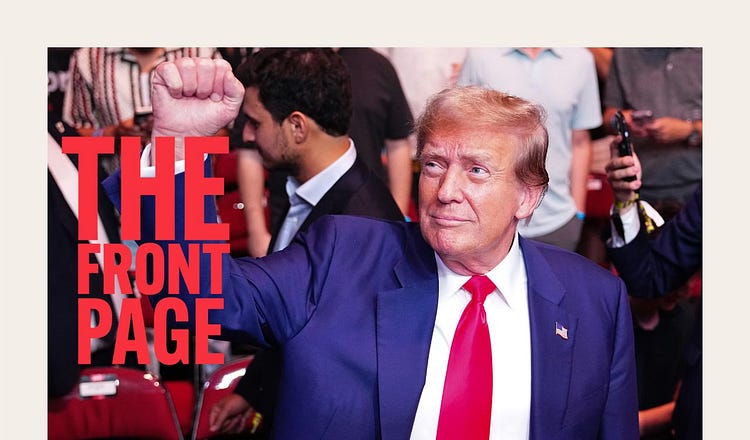They’re Voting for Trump to ‘Save Democracy.’ Plus. . .

The smartest takes on the former president’s conviction. Suzy Weiss on the return of the finance bro. Ben Kawaller on ‘racialized spaces.’ And much more.
679
On today’s Front Page from The Free Press: Suzy Weiss on the finance bro’s comeback, Ben Kawaller goes down a critical race theory rabbit hole, and much more.
But first, our lead story. After Donald Trump’s conviction in the New York hush money trial last week, America paused for only the briefest moment to mark the historic first: a former president wa…
Continue Reading The Free Press
To support our journalism, and unlock all of our investigative stories and provocative commentary about the world as it actually is, subscribe below.
$8.33/month
Billed as $100 yearly
$10/month
Billed as $10 monthly
Already have an account?
Sign In

